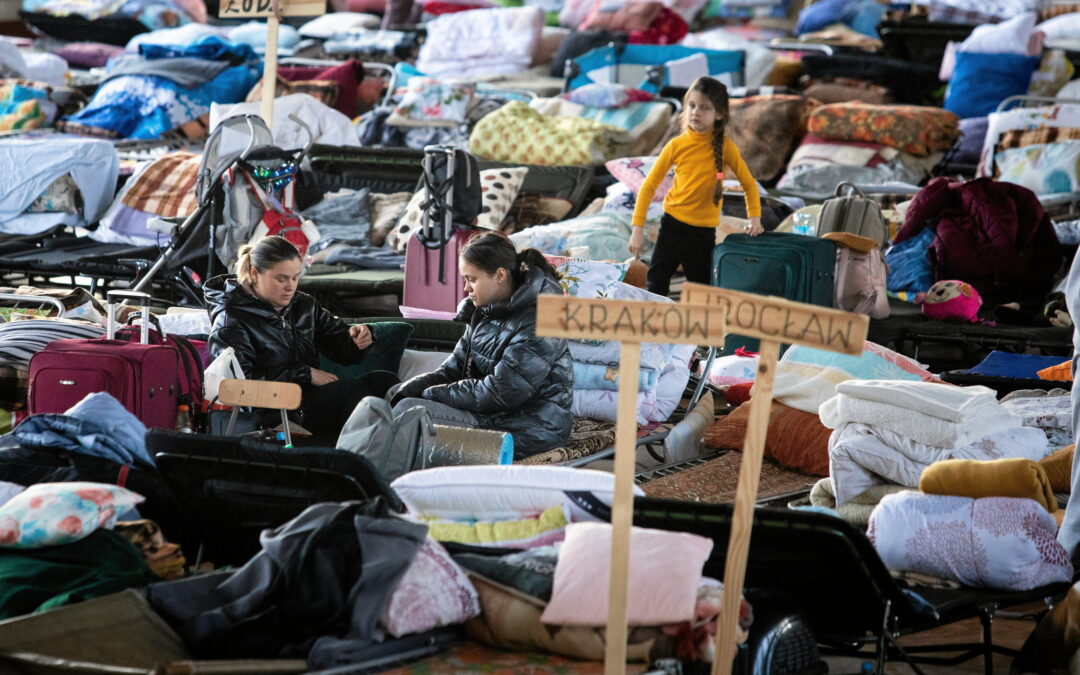Poland, which has received over two million refugees from Ukraine, deserves international support but will not “beg” for it, says Jarosław Kaczyński, chairman of the ruling party. Nor would it accept a system to relocate the refugees to other countries against their will.
In an interview for Polska Times, Kaczyński outlined the two guiding principles for the government’s policy towards the refugees, with one being “we will not go begging” for help.
“Of course, we feel that we deserve some help, but we will not go begging,” he told the newspaper. “We are a country in a perfectly good condition, over three times richer than in the early 1990s and over three times richer [today] than Ukraine per capita.”
The second principle is “no relocations”, explained the Law and Justice (PiS) party chairman: “if someone wants to stay here, they stay; and when they want to leave, they leave. We are not forcing anyone to do anything.”
“We already have more than two million refugees and we have not created any camps, and these people have somewhere to live,” he continued.
While the Polish government has not established any camps, many local authorities have created makeshift accommodation for refugees in sports halls, train stations, schools, shopping centres and other sites.
But many refugees have also been hosted in people’s private homes, while others have been accommodated by businesses, religious institutions and other organisations. The government has created a system of financial support to help those housing Ukrainians.
Speaking earlier this week to Polskie Radio, deputy interior minister Paweł Szefernaker noted that the UK has now also created a system through which people can host Ukrainian refugees in their homes.
He expressed satisfaction that “the Polish model, which we have developed together as a nation, is now also adopted in other states”.
However, critics of the government have argued that, rather than creating a comprehensive system of support, it has simply left local authorities and civil society to bear the burden.
A number of large Polish cities – which have been the primary destination for the refugees – have warned that they have reached the capacity for how many they can help. Warsaw and Kraków have both seen their populations expand over 16% within the space of a month due to the arrival of refugees.
They have appealed for more government to seek international support. Such calls received backing from President Andrzej Duda, a PiS ally, who last week “appealed to the entire international community for help for Poland”. He warned that, “if we do not receive international support, we will be in a very difficult situation”.
Hollywood star @SeanPenn has signed an agreement with Kraków for his @CoreResponse NGO to help the city deal with an influx of refugees from Ukraine.
Around 130,000 refugees have arrived there, increasing the city's population 16% in the space of a month https://t.co/qZI7lAOkRl
— Notes from Poland 🇵🇱 (@notesfrompoland) March 24, 2022
During his interview, Kaczyński also defended his proposal – first outlined during last week’s visit to Kyiv and later more formally proposed to NATO – for a peacekeeping force to be deployed to Ukraine.
This would be conducted “under perfectly legal conditions provided for by international law”, said Kaczyński, who, as well as being PiS chairman, serves as deputy prime minister with responsibility for security. “After all, no one is planning to enter Russia; a peace mission would be in Ukraine with the full consent of the Ukrainian authorities.”
“Such a mission would help a lot in the humanitarian dimension and, let’s face it, it would favourably change the strategic situation in Ukraine,” he added. “Our proposal would create at least a high probability that this war would end much sooner.”
Main image credit: Jakub Orzechowski / Agencja Wyborcza.pl

Daniel Tilles is editor-in-chief of Notes from Poland. He has written on Polish affairs for a wide range of publications, including Foreign Policy, POLITICO Europe, EUobserver and Dziennik Gazeta Prawna.




















